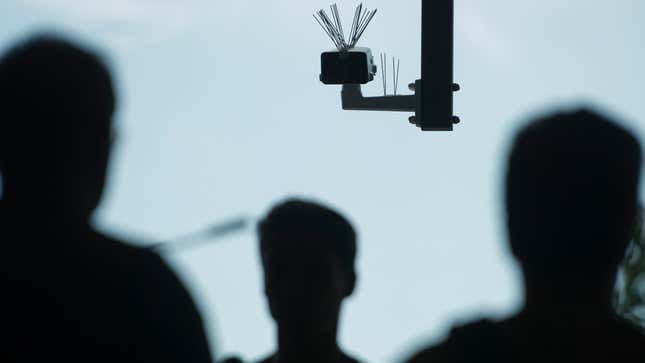
It’s official, as of today, Boston’s become the second-largest US community to ban police use of facial recognition technology, thanks to a unanimous vote by more than a dozen city council people. The move follows similar bans by the neighboring cities Brookline, Somerville, and Cambridge a few months back, along with San Francisco and other cities up and down the West Coast.
“We really have a tendency in this country to let our technology go ahead of our common sense about how we want to live together,” Boston Councilor Kenzie Bok said during the Wednesday vote. “And that’s why this to me is such a critical intervention for the council to be making in this moment.”
Bok was one of the 13 local Council people to vote unanimously on the motion to not only prohibits city officials from using their own facial-scanning tech themselves, but also from accessing it through any third parties.
The full-on ban wasn’t a hard sell to the local police department, who reportedly had previously disavowed the use of facial-recognition tech, citing its unreliability in the past. And in that respect, they’re absolutely correct—earlier today the Michigan branch of the ACLU announced that they’d be formally lodging a complaint against Detroit’s police force after its own facial recognition systems falsely tied a local suburbanite to a robbery he didn’t commit. The falsely accused at the center of the case, Robert Williams, just happened to be Black. It also just so happens that facial recognition systems are terrible at telling Black people apart, a fact that’s been proven time and time again by multiple academic studies over the years.
This is a point that came up during the Councilor’s meeting earlier today. Councilor Ricardo Arroyo, who co-sponsored the bill alongside Councilor Michelle Wu, explicitly mentioned that facial-recognition tech represents a greater danger to people of color.
“It has an obvious racial bias and that’s dangerous,” Arroyo told WBUR ahead of the hearing. “But it also has sort of a chilling effect on civil liberties.”
It’s notable that the ban came during a moment when multiple governments around the world—including our own—struggle with a way to keep watch over the fallout from the Coronavirus pandemic without stomping all over our right to some sort of digital privacy. In other US states, like Hawaii, facial recognition has become just part of the toolkit that local authorities have been turning to in order to keep a potential resurgence under wraps. Let’s hope they start thinking about following in Boston’s footsteps soon, too.